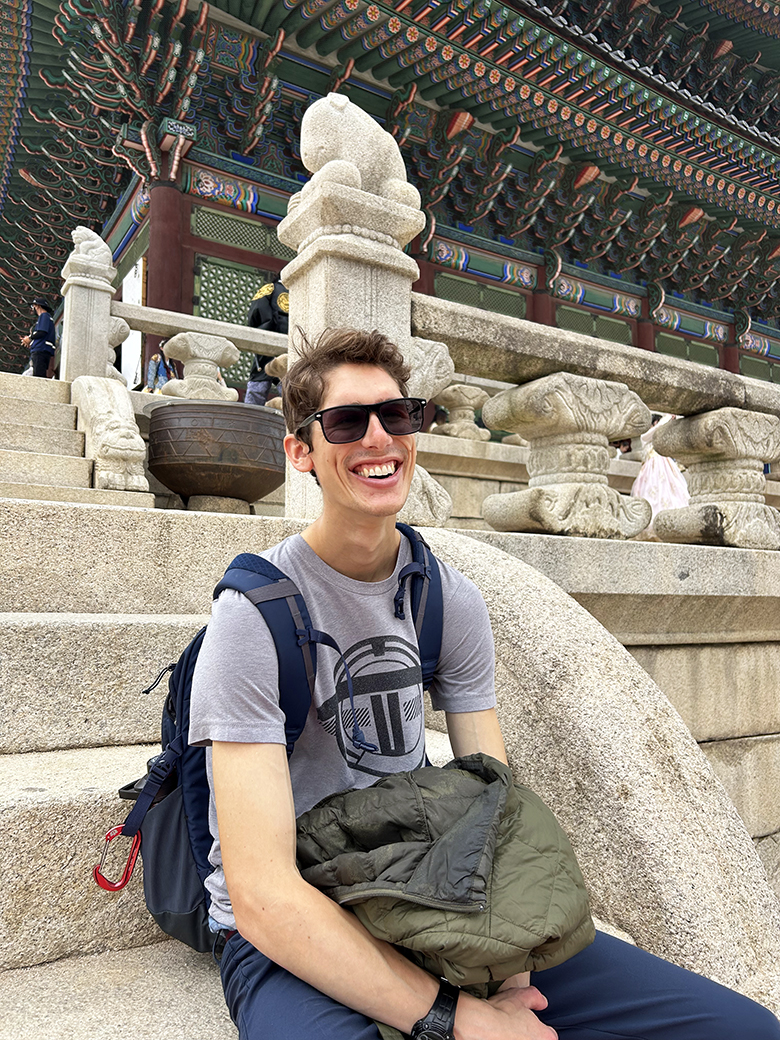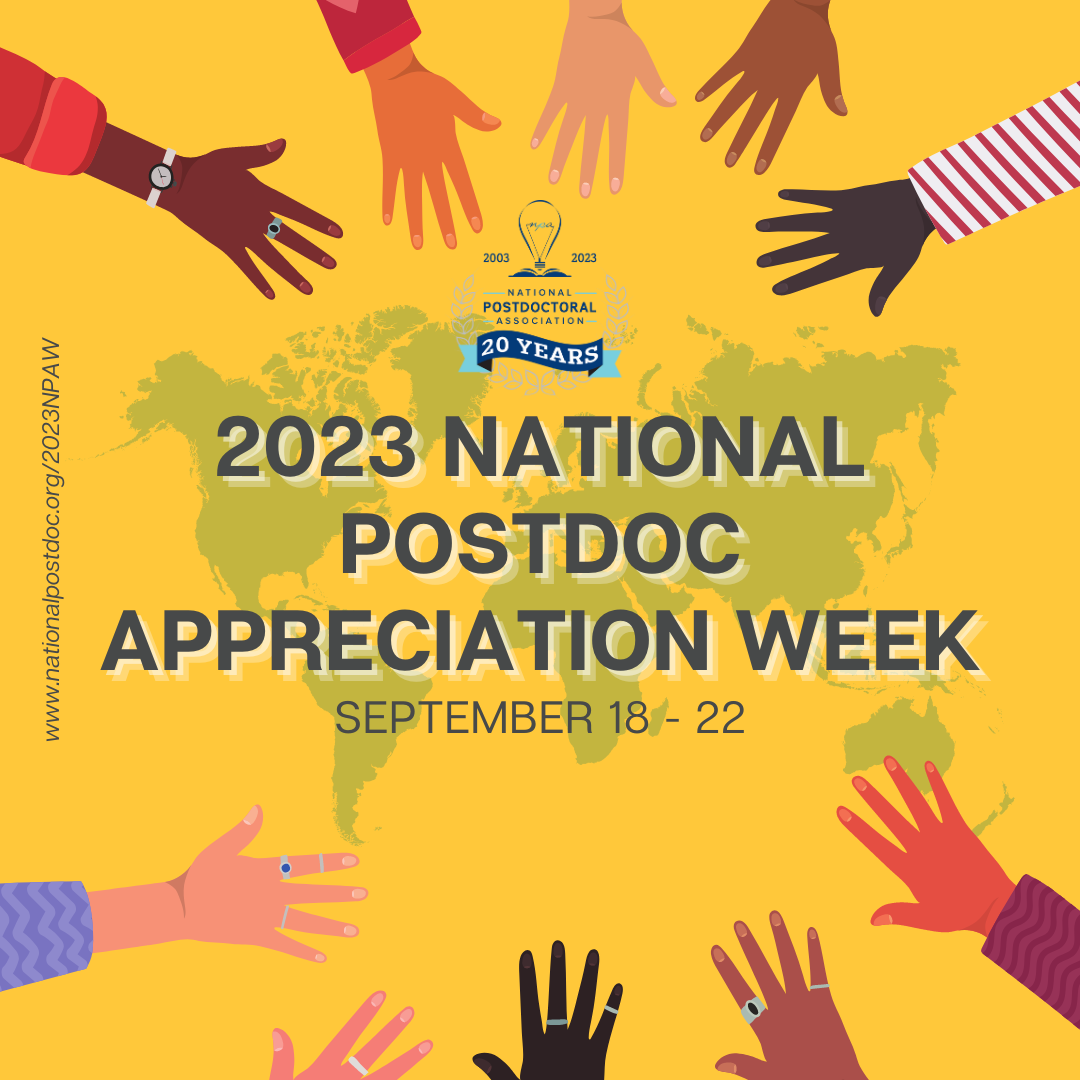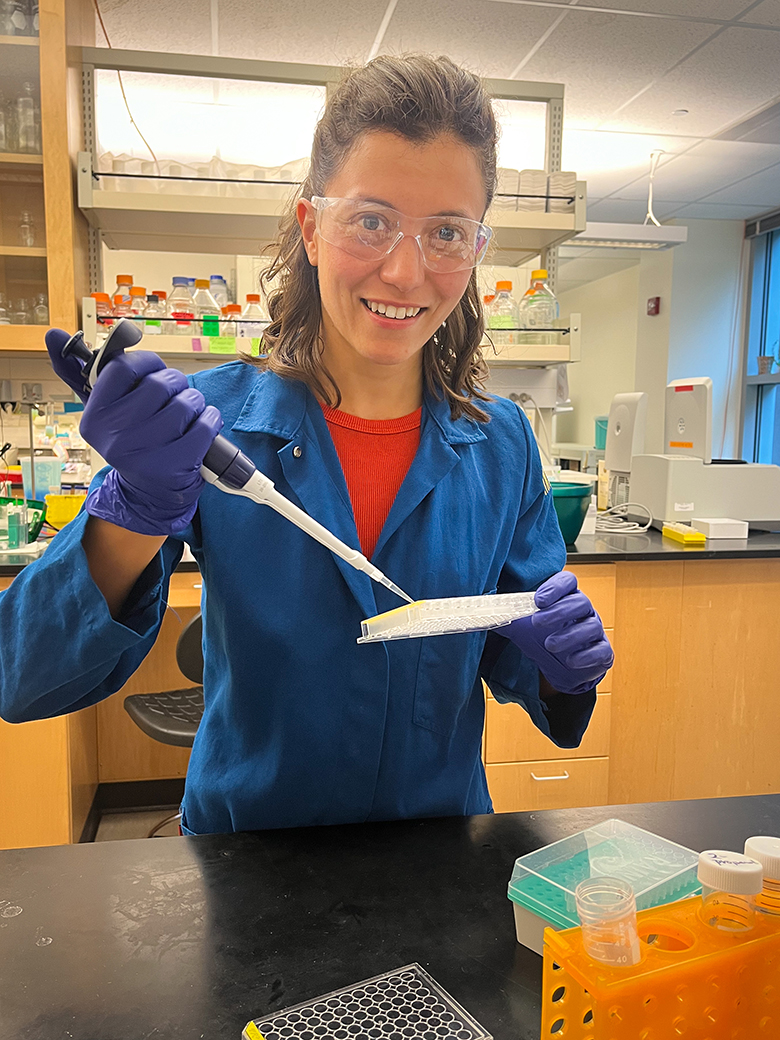National Postdoc Appreciation Week, organized by the National Postdoc Association (NPA) since 2009, takes place this year from September 18-22. The celebration aims to acknowledge the substantial impact postdoctoral scholars have on research and discovery. This year, the UC Santa Cruz Science Division is highlighting the work of two outstanding postdocs: Priya Crosby and Will DeRocco.
Dr. Priya Crosby
Priya Crosby, Ph.D., is a European Molecular Biology Organization (EMBO) long-term postdoctoral fellow in the Chemistry and Biochemistry Department at UC Santa Cruz. She researches circadian rhythms, the 24-hour biological oscillations that occur in almost all animals, plants, and some bacteria that allows them to anticipate daily events.
The circadian rhythm that is likely familiar to most of us is the sleep-wake cycle, but there are thousands of other biological processes that have a circadian rhythm and vary across the day, from hormone levels to wound healing. In fact, few biological processes don’t have a circadian rhythm. At their smallest level, circadian rhythms happen in single cells–every single cell in our bodies–and it is the collection of these rhythms in every single cell that drives rhythms in whole organisms.
Crosby focuses specifically on how these cellular rhythms work in mammals. She does this using an approach known as protein biochemistry that allows her to look at how proteins–one group of chemical building blocks that make up a cell–interact with each other to generate this 24-hour circadian oscillation at the subcellular level.
Crosby was introduced to the circadian field during a lecture series in the final year of her undergraduate degree. She remembers being immediately fascinated by it. She was (and still is) amazed by the fact that our biology is intrinsically linked to the fact that we live on a rotating planet and so have a circadian day-night cycle.
She went on to complete her Ph.D. in the field under the supervision of John O’Neill at the MRC-LMB in Cambridge (UK), before moving to UC Santa Cruz to do a postdoc with Professor of Chemistry and Biochemistry Carrie Partch. In Crosby’s words, O’Neill and Partch have been phenomenal mentors to her and are responsible for shaping the scientist that she is today. “They are both intensely analytical in their approach to questions, and both are entirely unafraid to push the boundaries of the field, thus serving as brilliant examples,” she said.
Crosby is currently in the process of starting her own lab back in the UK. "I’m extremely excited about this; I can’t wait to build a team to start asking all the questions I’ve been thinking about for the last ten years!"
For her work as a postdoc at UCSC, Crosby received one of two 2023 Graduate Division Outstanding Postdoc Awards, a prize of $1,500 for professional development, that she plans to use to attend a conference next year. She received the award at the June 2023 UCSC Postdocs Association Symposium. In response to receiving the award, Crosby states, “It was a huge surprise and honor, and I am extremely grateful.”
Dr. Will DeRocco

Will DeRocco works on the overlap of “beyond the Standard Model phenomenology” and astrophysics. In other words, he uses stars and planets to look for evidence of new physics. A major target of his work is dark matter, which we know makes up eighty percent of all matter in the Universe. But we have no idea what it is!
DeRocco's work extends more broadly than this, though, with much of his recent attention being directed toward gravitational wave detection with pulsar timing arrays and looking for free-floating planets with “gravitational microlensing.”
DeRocco knew he wanted to be a physicist as early as third grade. He read a book by Michio Kaku at the time and, despite understanding virtually none of it, thought, “this is what I want to be doing.” In fifth grade, he hand-wrote a letter to CERN, the famous particle physics laboratory in Switzerland, with a series of questions. A researcher there surprisingly wrote a letter in response and encouraged him to keep at it.
This was a transformative moment for him, and from then on, he was committed. He pursued his interest in physics through high school, eventually getting invited to work at a lab at Yale during his summers. When he entered college as an undergraduate, he had the opportunity to work at CERN, which felt to him like the "completion of a cycle"... except it wasn’t the end!
As DeRocco continued his studies, he realized that experimental physics wasn’t exactly right for him. "These hands should not be trusted to build anything," he explains. He then explored theory before eventually settling on theoretical astrophysics in graduate school.
"It’s been two decades since I decided to do physics and I still can’t get enough of it," DeRocco said. In the future, he hopes to be a professor or lab scientist at an institute and build a career around his interest in physics.
For his work as a postdoc at UCSC, DeRocco received one of the two 2023 Graduate Division Outstanding Postdoc Awards, a prize of $1500 for professional development. He’s still deciding how to spend it!




